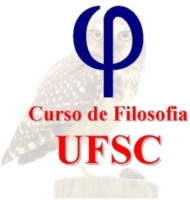FILOSOFIA DO DIREITO NA RÚSSIA
Философия ПРАВА в России
FILOSOFIA DO DIREITO
NA RÚSSIA
Why Protagoras gets paid anyway: a practical solution of the Paradox of court.
Elena Lisanyuk [Санкт-Петербургский государственный университет / St Petersburg State University]
The famous dispute between Protagoras and Euathlus concerning Protagoras’s tuition fee reportedly owed to him by Euathlus is solved on the basis of practical argumentation concerning actions. The dispute is widely viewed as a kind of a logical paradox, and I show that such treating arises due to the double confusion in the dispute narrative. The linguistic expressions used to refer to Protagoras’s, Euathlus’s and the jurors’ actions are confused with these actions themselves. The other confusion is the collision between the pairs of incompatible actions ambiguously expressed by two different pairs of sentences, one of which is a propositionally consistent pair whereas the other is an inconsistent one. The actional (practical) paradox solution aims to clear up these confusions by means of two core borderlines, propositional and expressive, drawn between the actions and the propositions. The propositional distinction says that actions are empirical facts and they lack truth values unlike propositions, which are mental entities and are often employed for referring to the actions. This distinction helps to avoid the confusion between the empirical incompatibility of actions and the truth-functional inconsistency of propositions. The expressive distinction claims that although the same linguistic sentences can be used to refer both to actions and propositions, two empirically incompatible actions can be expressed both by a pair of inconsistent propositions as well as by a pair of consistent ones. Therefore, the action of Protagoras’s getting paid may be linguistically symbolized in four different ways: Protagoras gets paid due to the verdict, Protagoras gets paid due to the contract that amount to Protagoras does not get paid by the contract and Protagoras does not get paid by the verdict respectively, and likewise for Euathlus’s actions. The two distinctions are used for classifying the two groups of paradox solutions, legal and logical, proposed so far depending on which of the two confusions they purport to escape from. The actional reconstruction of the paradox suggests that there is only one single agent in the dispute, Protagoras, while the other named Euathlus is a phantom, which most probably was invented by Protagoras himself for the sake of creating this challenging sophism.
Legal philosophy in Russia today
Mikhail Antonov (Санкт-Петербургская высшая школа экономики / St Petersburg Higher School of Economics)
The subject matter is about the fundamentals around which legal philosophy is organized in Russia, and about the developments that shaped these fundamentals and the specific ways to discuss them. This paper does not seek to give a full account of the names and topics discussed by Russian legal scholars, as this would confine the presentation to the details that are not important for the evaluation of the state-of-affairs and further development. Instead of being a meticulous description of who said what about legal theory in Russia, this contribution would present the topic as a general introduction to Russian legal thinking, and as a short explanatory notice for better understanding narratives of Russian political leaders (Putin, Medvedev and many others have legal formation) and legal scholars. I will give some prehistory to situate the recent developments and further prospects in a more general context.
29 de maio -19:00 – 21:30 CFH Sala 209











Comments